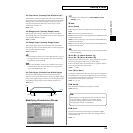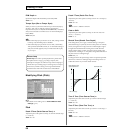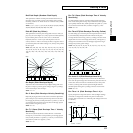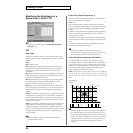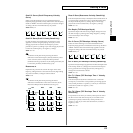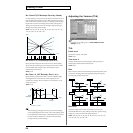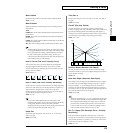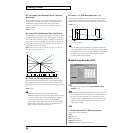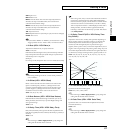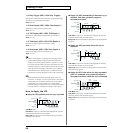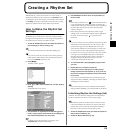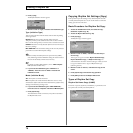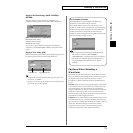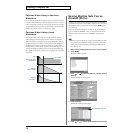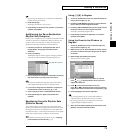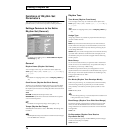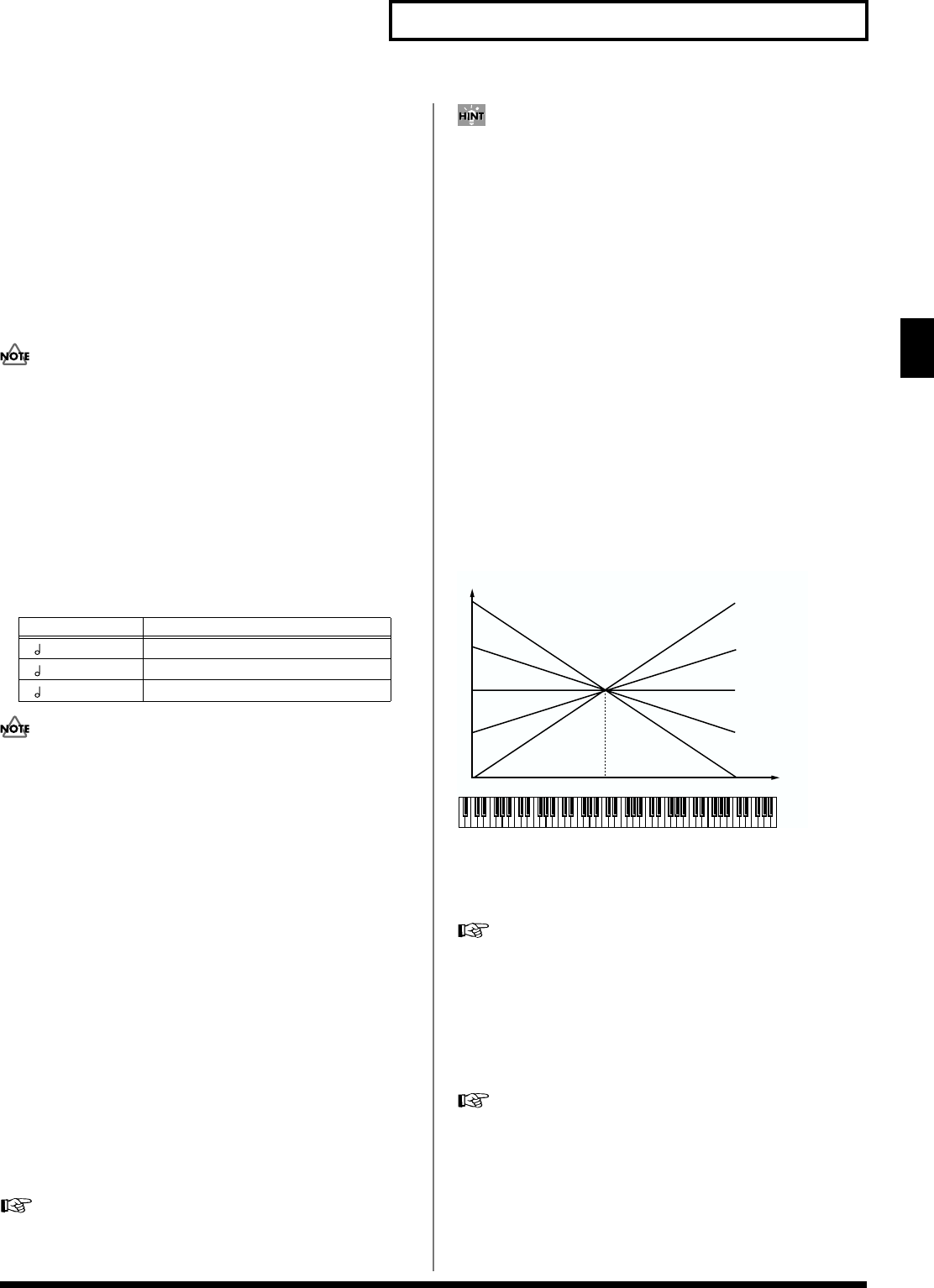
67
Creating a Patch
Creating a Patch
SQR: Square wave
RND: Random wave
BND-U: Once the attack of the waveform output by the LFO is
allowed to develop in standard fashion, the waveform then
continues without further change.
BND-D: Once the decay of the waveform output by the LFO is
allowed to develop in standard fashion, the waveform then
continues without further change.
TRP: Trapezoidal wave
S&H:
Sample & Hold wave (one time per cycle, LFO value is changed)
CHAOS: Chaos wave
If you set this to “BND-U” or “BND-D,” you must turn the 1:/2:Key
Trigger parameter to “ON.” If this is “OFF,” it will have no effect.
1:/2:Rate (LFO1/LFO2 Rate) ★
Adjusts the modulation rate, or speed, of the LFO.
Value: 0–127, Note
LFO Rate sets the beat length for the synchronized tempo when the
tempo that specifies the LFO cycle (Patch Tempo) is synchronized
with the tempo set in a sequencer.
(Example)
For a tempo of 120 (120 quarter notes occur in 1 minute (60 seconds))
This setting will be ignored if the 1:/2:Waveform parameter is
set to “CHAOS.”
1:/2:Offset (LFO1/LFO2 Offset)
Raises or lowers the LFO waveform relative to the central value
(pitch or cutoff frequency). Positive (+) settings will move the
waveform so that modulation will occur from the central value
upward. Negative (-) settings will move the waveform so that
modulation will occur from the central value downward.
Value: -100, -50, 0, +50, +100
1:/2:Rate Detune (LFO1/LFO2 Rate Detune)
LFO Rate Detune makes subtle changes in the LFO cycle rate (1:/
2:Rate parameter) each time a key is pressed. Higher settings will
cause greater change.
Value: 0–127
1:/2:Delay Time (LFO1/LFO2 Delay Time)
Delay Time (LFO Delay Time) specifies the time elapsed before the
LFO effect is applied (the effect continues) after the key is pressed (or
released).
Value: 0–127
After referring to “How to Apply the LFO” (p. 68), change the
setting until the desired effect is achieved.
When using violin, wind, or certain other instrument sounds in a
performance, rather than having vibrato added immediately
after the sounds are played, it can be effective to add the vibrato
after the note is drawn out somewhat. If you set the 1:/2:Delay
Time in conjunction with the 1:/2:Pitch Depth parameter and 1:/
2:Rate parameter, the vibrato will be applied automatically
following a certain interval after the key is pressed. This effect is
called Delay Vibrato.
1:/2:Delay Time KF (LFO1/LFO2 Delay Time
Key Follow)
Adjusts the value for the 1:/2:Delay Time parameter depending on
the key position, relative to the C4 key (center C). To decrease the
time that elapses before the LFO effect is applied (the effect is
continuous) with each higher key that is pressed in the upper
registers, select a positive value; to increase the elapsed time, select a
negative value. Larger settings will produce greater change. If you do
not want the elapsed time before the LFO effect is applied (the effect
is continuous) to change according to the key pressed, set this to “0.”
Value: -100, -90, -80, -70, -60, -50, -40, -30, -20, -10, 0, +10, +20, +30,
+40, +50, +60, +70, +80, +90, +100
fig.Time KF.e
1:/2:Fade Mode (LFO1/LFO2 Fade Mode)
Specifies how the LFO will be applied.
Value: ON <, ON >, OFF <, OFF >
After referring to “How to Apply the LFO” (p. 68), change the
setting until the desired effect is achieved.
1:/2:Fade Time (LFO1/LFO2 Fade Time)
Specifies the time over which the LFO amplitude will reach the
maximum (minimum).
Value: 0–127
After referring to “How to Apply the LFO” (p. 68), change the
setting until the desired effect is achieved.
Setting Delay time
(half note)
1 second (60 / 60 =1 (second))
(quarter note)
0.5 seconds (60 / 120= 0.5 (seconds))
(eighth note)
0.25 seconds (60 / 240= 0.25 (seconds))
C4C3C2C1 C5 C6 C7
0
+50
+100
-50
-100
Key
Time



